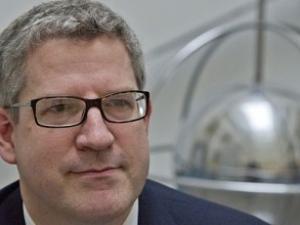Short Description
UK’s intelligence agency is facing accusation of paying hundreds of Euros for Muslim informants to spy on their communities, in a strategy that threatens to produce “corrupted” and “fabricated” information.
UK’s intelligence agency is facing accusation of paying hundreds of Euros for Muslim informants to spy on their communities, in a strategy that threatens to produce “corrupted” and “fabricated” information.
“It’s been driven by the [intelligence] agencies, it’s a network of human resources across the country engaged to effectively spy on specific targets. It’s decent money,” source, not from Whitehall but with knowledge of the payments, told the Guardian.
The officials, who conceded employing informants within the Muslim community, defended the initiative as a part of the government’s official post-9/11 counter-terrorism strategy.
Known as “Pursue”, the initiative has an official remit to “stop terrorist attacks in this country and against our interest overseas. This means detecting and investigating threats at the earliest possible stage.”
According to sources within the Muslim community, MI5 is paying Muslim informants for “controversial short-term spying missions” to combat the "homegrown extremism".
Informants are being hired from across the UK, including Manchester and London, for temporary assignments to acquire intelligence on specific targets.
In one case, an informant has been recently paid £2,000 by security services to spy on activities relating to a mosque over a six-week period.
The budget allocated to such transactions and the number of informants is vague.
Britain is home to a sizable Muslim minority of nearly 2.7 million.
In 2011, think tank Demo found that Muslims in the United Kingdom are more patriotic than the rest of population.
Responding to the statement “I am proud to be a British citizen”, 83% of Muslims said they are proud of being British.
Fabricated Information
The MI5 plans to pay for spies to monitor Muslim communities has been vehemently criticized by Muslim leaders, who warned that such payments may produce “tainted intelligence.”
“We want our national security protected but, as with everything, there needs to be due scrutiny and we need to ensure things are done properly,” Salman Farsi, spokesman for the East London Mosque, the largest in the UK, said.
“If there’s money on the table, where’s the scrutiny or the oversight to ensure whether someone has not just come up with some fabricated information? Money can corrupt.”
Meanwhile, Farsi cited the failure of the government’s central counter-radicalization program, Prevent, which was introduced following the 7 July bombing, despite spending tens of millions of pounds on hundreds of initiatives.
“When they started dishing out money, everyone was willing for a bit of money to dish the dirt, make up stuff,” said Farsi.
“There’s good work to be done, but quite frankly you don’t need to send in informants to mosques to find out what’s going on. We need a fresh approach, genuine community engagement.”
The British government claims that up to 700 Britons have traveled abroad to take part in fighting in Syria, and that at least 300 have returned to the UK.
A new survey by Sky News has revealed that 40% of British Muslims partly blame police and MI5 for radicalizing young people, amid surge in the number of youth who travel to join fight in the Middle East.






![نصيحتي لك: اذكر الله [1 / 12] نصيحتي لك: اذكر الله [1 / 12]](http://97.105.52.213/images/upload/content_thumbs/1913613138ragheb-al-serjany-videos.jpg)


Comments
Send your comment